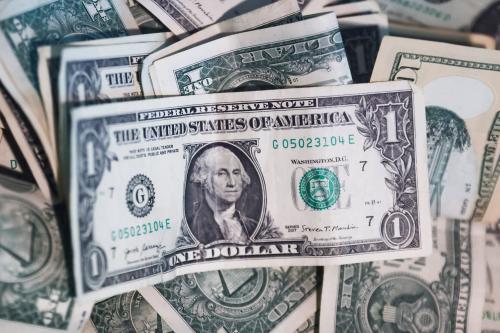Thomas Mann joined former FEC chairman Brad Smith to discuss the real or perceived danger to the McCain-Feingold law, alternative methods of finance reform and more, in a week long debate for the Los Angeles Times. Read the Entire Debate
Day 5
Brad, for the final installment in our debate, let’s assume your policy preferences on campaign finance regulation are realized. By court action or legislation, laws regulating the contribution and expenditure of funds in federal elections are ruled unconstitutional or repealed. Corporations and unions are free to draw on their general treasury funds to participate in federal election campaigns. Individuals and PACs can make unlimited contributions to candidates and parties. Political parties can accept contributions from any source and of any size, and spend those resources as they see fit. The presidential public funding system dies of its own weight or by explicit repeal, and no other forms of public subsidies are enacted to replace it. The Federal Election Commission remains in place but with a vastly reduced jurisdiction, primarily to oversee whatever disclosure requirements are retained. Bribery and extortion statutes remain on the books and become the sole mechanisms for preventing and punishing corruption. I presume IRS restrictions on 501(c) organizations regarding political activity would also be retained (or would those be repealed as well?).
I expect you and other deregulation adherents would welcome the end of restrictions on political speech and the bureaucratic interference involved in policing those restrictions, the likely increase in funds available to enable that speech, the possible emergence of donors willing and able to generously finance challengers to entrenched incumbents and the development of a citizen-run marketplace to discipline the role of money in politics. Sounds pretty attractive.
Critics of deregulation (myself included) anticipate a different set of consequences. With no restrictions on what they can receive in political contributions (short of quid pro quo agreements), elected officials gain enormous power over those whose economic fates are influenced by public policy decisions. An informal “pay to play” system, once restrained by limitations on contributions and a ban on party soft money, flourishes in a deregulated system. Campaign money becomes even more the coin of the realm in Washington, D.C., the focus of enormous time and energy by politicians and the basis of leadership advancement and influence in Congress. Large economic interests invest heavily in one party or both, drowning the voices of those less well endowed. Electoral competition further erodes as incumbents seize the fundraising opportunities afforded those in charge of government, and no public subsidies are available to level the playing field. The discipline of the political marketplace fails as citizens find it too daunting to acquire the necessary information and to calculate a basis for differentiating between candidates or parties based on their contributors that would override other important motivations for their vote, and private interests hedge their bets by investing in both sides. The legitimacy of the democratic process is threatened by the free flow of unimaginable sums of money from private interests to public officials.
Whose scenario is more likely? My views and yours are certainly shaped by our broad philosophical views, which to some extent color our reading of the empirical evidence that can be brought to bear on this debate. At the same time, we both sincerely believe that we are making responsible judgments and forecasts based on the realities of money in politics. What do the readers think?
The Brookings Institution is committed to quality, independence, and impact.
We are supported by a diverse array of funders. In line with our values and policies, each Brookings publication represents the sole views of its author(s).



Commentary
Op-edCampaign Finance: Is Unregulated Spending the Most Effective Way to Ensure Citizens Have the Power to Speak to Their Government?
July 13, 2007